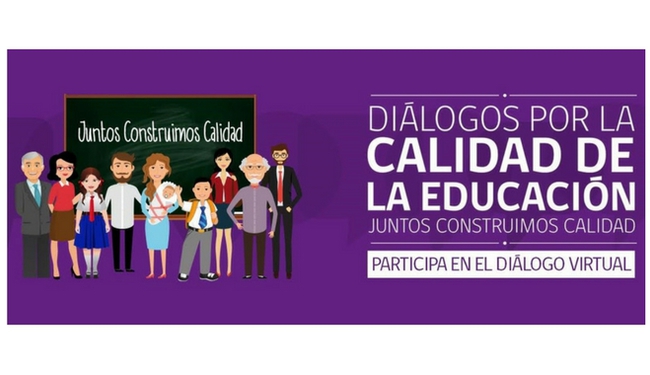The Chilean Education Quality Assurance Agency works together with the education system, “providing evaluation, guidance and information in order to achieve a comprehensive quality Education.” The following blog presents an interview with the Agency’s Executive Secretary.
Carlos Henríquez Calderón is the Executive Secretary of the Education Quality Assurance Agency, a public service body, which aims to evaluate and orientate the education system to achieve a higher level of quality and equality in educational opportunities. In an interview with Barbara Santibañez, a human rights education specialist and Rotary Peace Fellow, he answers a few questions about the Agency’s experience.
What is the Education Quality Assurance Agency? Why was it created?
The Education Quality Assurance Agency was created in the context of the student protests of 2006. It was designed to discuss the quality of education. One of the commission’s first conclusions was that different views exist regarding the topic and that progress requires a certain institutionalisation, causing a change in paradigm with regards to quality assurance, focusing on schools’ strengths, weaknesses and their context. We are now absorbing this, which is the main challenge: schools need to be at the centre, in order for quality to properly flourish.
How does it work and what are its responsibilities in relation to the Ministry of Education?
As an agency focused on quality, we have three functions: first, we assess learning achievements with a wider focus with regards to quality, usually using the SIMCE assessment reports as well as some new instruments like personal and social development indicators. Second, we provide information to various education stakeholders to enable them to make progress in relation to quality. And lastly, we provide guidance to the education community to ensure that evaluations makes sense and for it to be a support for the process. In a wider sense, to make sure the evaluation is seen as an opportunity and as a focal point for a better and greater lessons learned process for the whole school system, particularly for decision-makers, teachers and executives.
What links does the agency have with the various education sectors?
Initially, we were seen as a sanctioning body, looking for scapegoats. However, then we started organising evaluation and guidance visits, during which a team spends three days working with a school to look at its teaching strategy, as well as identify its strengths and weaknesses. There is a task of professionalization required, but all of our efforts, however difficult, have already produced results. We are a new agency; we don’t claim to be the solution but rather a support. We aim to help and initiate conversations within schools and the whole school system in order to ensure greater quality. In that sense, an agency like ours can drive a certain sort of discussion, ask certain questions, collaborate with others, etc.
One of the agency’s new initiatives is the Dialogues for Education. What is its main objective? Who is targeted?
The Dialogues aim to be a space for discussing quality in education with various stakeholders. We have a framework for quality defined in a law, but we ask can each school community to own its own process. How can they take ownership of the conversation on quality? What we have tried to do is open a space for conversation, where, more than giving answers, the aim is to ask questions together and determine what the different points of convergence are.
What are the agency’s greatest successes?
We have achieved many things within all of our functional areas. First, in the assessment of a significant number of children in a very short amount of time (8,500 institutions all over Chile and more than 1.08 million students). On top of the assessment of language and mathematical achievements, there are these new personal and social development indicators, which help us give a clear message, which has been an important success. Second, with regards to guidance, we started with 20 school visits; in 2015 we reached 505 schools. To reach this number was a massive effort in terms of financial and human resources. And lastly, there is the information provided to parents, legal representatives, teachers and schools, through training, seminars and dialogues with communities. We have had many successes, not only in quantitative terms, but also qualitative, mainly through training and guidance. For example, last year we trained 3,400 headmasters, which represents almost a third of the whole school system.
What have been the main challenges?
The first challenge was to build a structure, which isn’t just achieved with a law. Second, changing the view that assessments are only punitive, but that it is important to determine where we are, to improve and take responsibility. A third challenge has been to expand our instruments and tools, in order to not just use standardised assessments.
What could other countries learn from the Chilean experience?
In terms of our lessons learned, what is important isn’t just the design of the programme but also its implementation. For example, our quality assurance system was created in 2011, but we could only get it off the ground between 2014 and 2015. Creating a legal framework isn’t enough; you need effort, dedication, capacities, teamwork, and numerous elements to help the implementation and make a difference. Second lesson learned: the importance and necessity of being able to meet and synergise. This can’t be just a technical discussion; it has to be a conversation with the education communities, the parents, legal representatives, teachers, and for everyone to put children and young people’s interest above corporate interests. The third lesson is that each country has to tailor its own model. Chile has made progress, and while making progress, it is important to value what has been achieved and put challenges into perspective.


